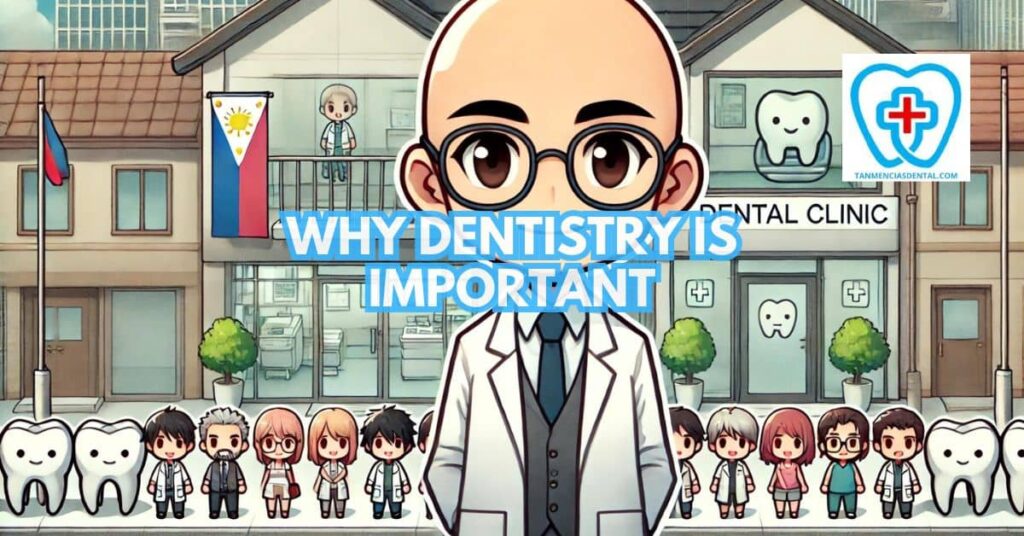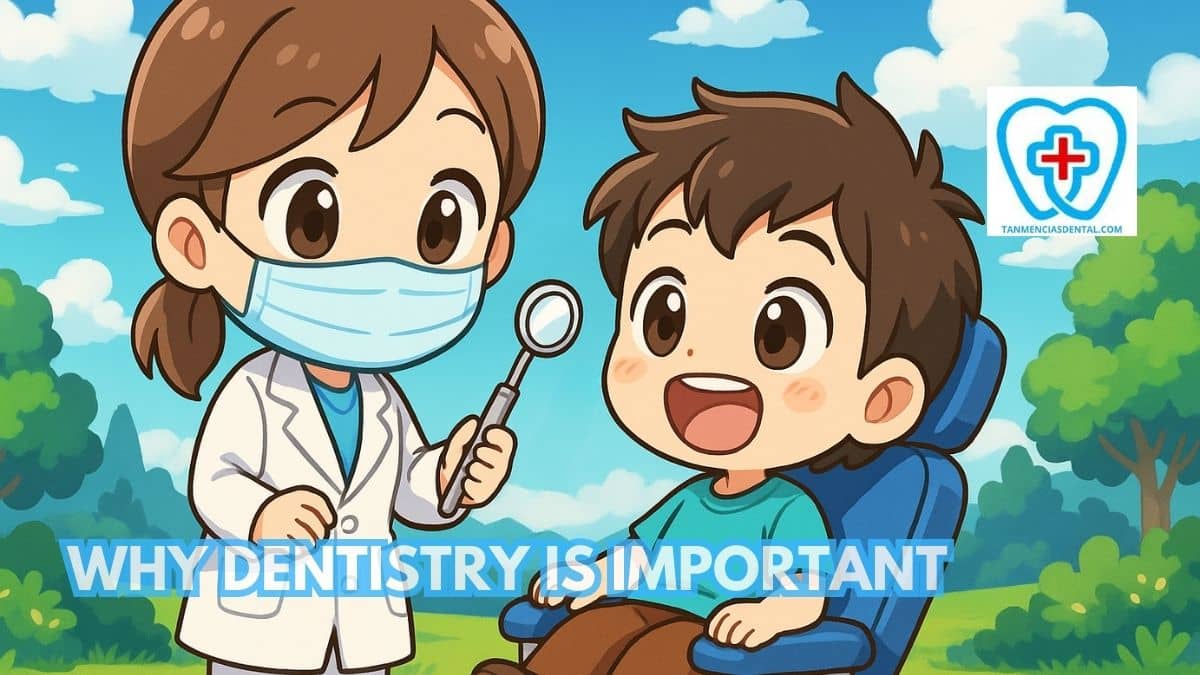When people think about dentistry, they often picture clean teeth and bright smiles.
However, dentistry plays a major role in protecting health beyond appearance.
It addresses risks that affect the entire body, not just the mouth.
A dental visit can uncover conditions that might otherwise remain hidden.
Understanding why dentistry is important reveals its role in keeping people safe and healthy.
1. Dentistry’s Impact On Overall Systemic Health
Oral health problems such as gum disease are connected to serious conditions like heart disease and diabetes.
Bacteria and inflammation in the mouth can enter the bloodstream and place extra strain on the body.
When these problems are not addressed, they can raise the risk of long-term health issues.
Dentists play a key role in protecting dental health by treating infections, reducing swelling, and checking for early warning signs.
Regular visits allow them to spot issues before they spread and affect vital organs.
Good oral health also supports the immune system, which is essential for overall well-being.
By preventing untreated infections, dentists help reduce complications that can lead to hospital care.
This makes dentistry an important part of both oral health and total body health.
🦷 Is It OK To Eat After Brushing Your Teeth?
2. Medical History Review And Risk Prevention
Dentists carefully study a patient’s health records before starting any treatment to avoid possible risks.
This review includes checking for allergies, past surgeries, and current medications that may affect the outcome of dental care.
For example, a patient who takes blood thinners may be at risk of heavy bleeding during a procedure.
By knowing this in advance, the dentist can take safer steps and plan treatment more carefully.
General dentistry relies on this type of preparation to protect patients while still addressing their oral needs.
These adjustments also allow dentists to recommend the safest treatment options for each individual.
Careful reviews lower the chance of harmful events and keep patients safer during dental care.
🦷 Can Pediatric Orthodontists Prevent Complex Dental Problems? Early Interventions Explained
3. Unexpected Medical Emergencies During Treatments
Even simple dental treatments can cause medical problems to appear suddenly.
Patients may faint, have a drop in blood sugar, or experience allergic reactions.
Dental staff are trained to notice these changes quickly.
They are also ready to provide immediate support until further care is available.
This readiness protects patients during stressful moments.
🦷 Why are My Gums Peeling After Brushing My Teeth?
4. Early Recognition And Swift Emergency Response
Dentists watch for warning signs like breathing problems, chest pain, or dizziness.
Recognizing these signs early makes it easier to provide help right away.
Quick action can prevent conditions from becoming life-threatening.
Many dental offices have clear response steps to follow in emergencies.
This careful attention shows why dentistry is important for patient safety.
🦷 How a Children’s Dentist Makes Dental Visits Fun and Stress-Free

5. Basic Life Support And CPR Skills
Dentists and their teams receive training in CPR and other life-saving methods.
These skills are used if a patient stops breathing or their heart suddenly stops.
Having this training in the dental office means help can start without waiting for paramedics.
Many offices also keep defibrillators to restart a failing heartbeat.
This preparation increases a patient’s chance of survival during a crisis.
🦷 Fresh Breath, No Paste? How to Brush Your Teeth Without Toothpaste and Keep Smiling
6. Life-Saving Emergency Drugs Availability
Dental clinics usually store emergency medications for urgent care.
These drugs can treat asthma attacks, allergic reactions, or severe drops in blood sugar.
The presence of these supplies means patients receive treatment without delay.
Staff are trained to use these medicines safely and effectively.
This backup system adds another layer of protection during emergencies.
🦷 Beyond the Bristles: Creative Ways on How to Clean Teeth Without Brushing
7. Dental Office Emergency Preparedness
A well-prepared dental office has plans and tools ready for unexpected situations.
Staff practice drills to keep emergency actions fresh in their minds.
Safety equipment like oxygen tanks and first aid kits are checked often.
Clear roles are given to each team member to avoid confusion.
These steps make sure that patients receive steady and organized care in emergencies.
🦷 Brushing Up on Basics: Can You Spread Gingivitis to Others?
8. Regular Emergency Training For Dental Teams
Dental teams practice emergency procedures on a regular basis so they can stay prepared for real situations.
These sessions often include CPR practice, equipment handling, and patient safety drills that build strong response skills.
Regular dental staff training ensures that every team member knows how to act quickly when unexpected problems occur.
Repeated practice also helps new employees learn how to handle crises without hesitation.
Many dental services require staff to maintain updated certifications to make sure their knowledge stays current.
This ongoing training improves teamwork and reduces mistakes during high-pressure events.
By keeping their skills sharp, dental teams make clinics safer and more reliable places for patient care.
🦷 Brushing Your Teeth Too Hard? You Might Be Doing More Harm Than Good!
9. Dentistry’s Role In Preventing Life-Threatening Complications
Mouth infections, when left untreated, can spread to other areas of the body and create serious health problems.
Severe cases may lead to conditions that damage vital organs or require hospital care.
Regular checkups allow dentists to find these issues early and stop them from becoming dangerous.
Good oral hygiene also plays a key role, since keeping the mouth clean lowers the chance of harmful bacteria growing out of control.
Dentists can remove infected teeth, drain abscesses, and give treatments that prevent further complications.
They also check for early signs of oral cancer, which can be managed more successfully when discovered in its first stages.
By combining prevention, treatment, and monitoring, dentistry protects both oral health and the body’s overall safety.
🦷 Basic Dental Needs in Marikina

10. Dental Clinics As First Responders
Sometimes dental visits reveal medical conditions a patient did not know about.
High blood pressure, irregular heartbeats, or signs of diabetes can be noticed during checkups.
Dentists can then refer patients for medical care before the issues worsen.
In emergencies, dental teams may be the first to act while waiting for an ambulance.
Their role as early responders adds another way dentistry saves lives.
🦷 Dental Treatment Options in Marikina City
👨⚕️ Conclusion
Dentistry is important not only for oral care but also for protecting overall health.
Dentists prevent infections, manage risks, and respond to emergencies when needed.
Their skills extend beyond the mouth and play a part in saving lives.
Regular visits to the dentist keep both oral and general health in check.
Understanding why dentistry is important helps people value the full range of care it provides.
😊 Self-Promotion
At Tan-Mencias Dental Clinic, we care about your smile and your overall health.
You can find us at 44 G. Del Pilar Street, Parang, Marikina City, where our team is ready to serve you.
For any questions, you can call us at 0917-145-1074, send us a message through our Facebook page, or use the contact form on our website.
We are always happy to guide you and answer your concerns.
Visit us today and let us help you keep your smile healthy and bright.

